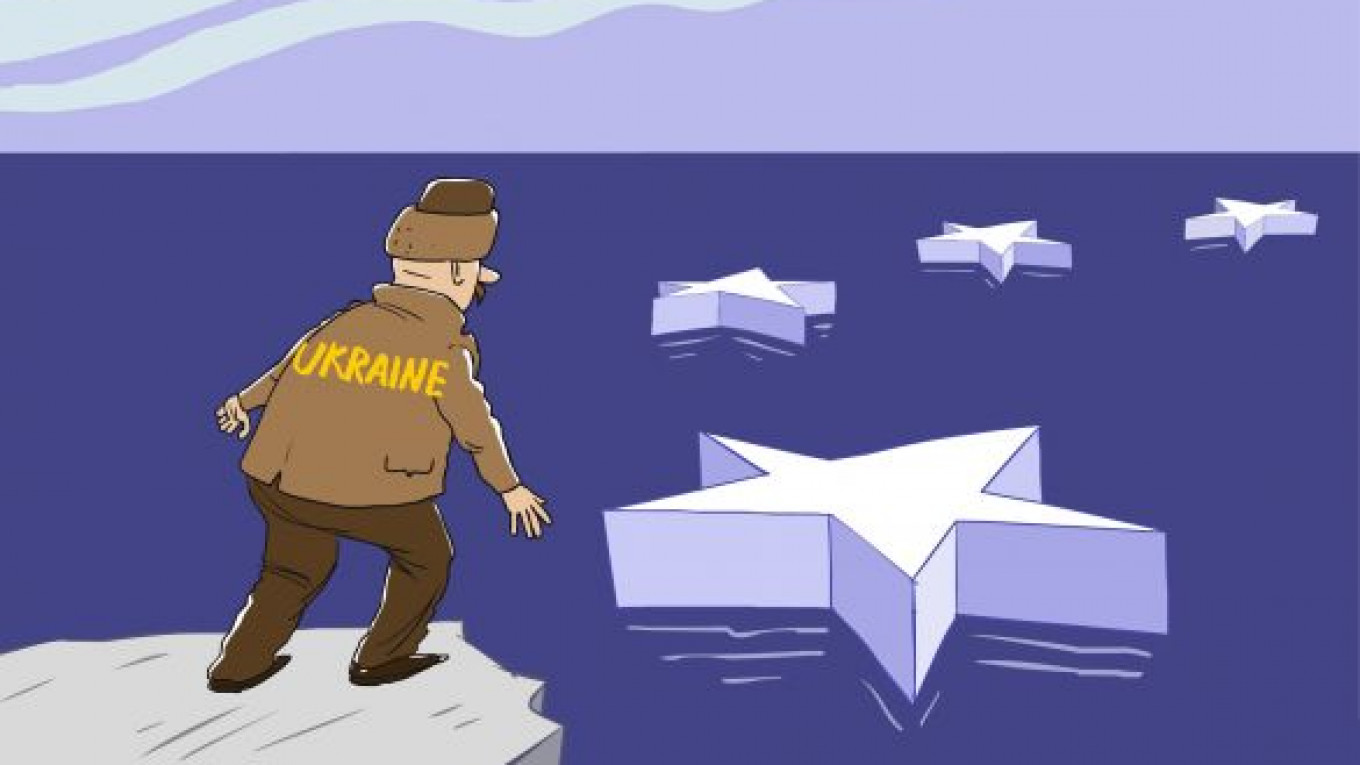Ukrainian President Viktor Yanukovych's decision to not sign the Association Agreement with the European Union should motivate the EU to adopt new tactics regarding Russia. Above all, the EU should stop isolating Russia and work a lot harder to include it as an integral part of Europe.
Initially, Yanukovych saw the Association Agreement as a good way to establish friendly relations with Europe and increase his chances for re-election in 2015. Indeed, Ukraine's economy would have benefited as a transit nation for EU goods destined for the Russian market.
But President Vladimir Putin burst that bubble by making it clear to Yanukovych that Moscow would not permit Ukraine to act as a transit country because it would destroy several key sectors of Russia's economy, including automobile, aviation and agriculture. That would also have led to major economic losses in Ukraine's southern and eastern regions, ensuring electoral defeat for Yanukovych in 2015.
At the same time, however, I believe Yanukovych and Ukrainian Prime Minister Mykola Azarov when they said they would have signed the agreement if the EU had offered to pay Kiev 50 billion euros ($68 billion). This amount would have compensated Ukraine for losses it would have sustained from Russia's punitive measures, as well as the crushing, one-sided conditions that the EU agreement itself would have placed on the country.
In reality, Yanukovych would have probably signed if he was offered 20 billion euros, but the EU only offered 1 billion euros plus aid from the International Monetary Fund that required Ukraine to adopt strict economic reforms. In weighing the Russian and EU offers, he only had one concern: which one would better increase his chances of being re-elected in the presidential election.
Brussels' logic in this affair is also clear. The EU aims to surround itself with dependent countries possessing resources that the EU can use for its own needs. The EU has successfully concluded such agreements with countries located in the southern parts of the union. What's more, those countries are so underdeveloped that the prospect of deindustrialization does not frighten them. But Russia is offering the countries on the EU's eastern flank more promising projects involving a common market and joint development of advanced technologies. That, plus the fact that the process of deindustrialization is already underway in those countries explains why the same EU policy met with resistance in the East.
If Ukraine had signed the Association Agreement, it would have also dealt a huge blow to Putin by ruining his plans for creating a common economic space that includes Ukraine, the second-largest market in the Commonwealth of Independent States. The battle for Ukraine is part of a larger geopolitical struggle between Russia and the West. European politicians even had the gall to say that the agreement would in no way adversely affect Russia's interests. Everyone understands this is an outright lie, and such statements hardly serve as a strong foundation for positive relations with Russia. That is why Moscow acted to defend its own interests.
But Russia is not opposed to the EU. On the contrary, Russia would like to build good relations with Europe, and it has proposed the Greater Europe project with that goal in mind. That arrangement would also include other, non-EU member nations.
If Europe would like to include Ukraine, the EU could offer Kiev full membership. But Brussels is not offering full membership to Ukraine. That's why Russia wants to create its own economic alliance — initially a Customs Union, later a Eurasian Union. Right from the outset, those alliances would be founded on the same principles and the same trade regulations as the EU. The hope is that by establishing a common market, the member countries can reduce poverty, bring technological developments up to pace, and strengthen their economies along with their social and democratic political institutions. At that point, the Eurasian Union could join with the EU to create a Greater Europe, gradually formalizing common economic and humanitarian practices, establishing a unified set of rules and the free flow of trade, capital, people and ideas. That would make for a very strong Europe.
The collapse of the semi-colonial Association Agreement with Ukraine is not a defeat for the EU. It is, thankfully, a defeat for the geopolitical model that is determined to keep Eastern countries weak and dependent on Europe. Yanukovych's decision was also a collapse of the EU's fundamentally flawed policy toward Russia, one in which it sees EU-Russian relations as a zero-sum game. Hopefully, after EU leaders realize that they cannot beat Russia in this game, they will adopt a new strategy that will not exclude Russia as if it were somehow an inferior country, but include it as a full-fledged and equal partner.
Russia advocates a Greater Europe and proposes holding talks on how all sides can work together on equal footing. It is high time for Europe to respond in good faith.
Sergei Markov is vice rector of Plekhanov Economic University in Moscow.
A Message from The Moscow Times:
Dear readers,
We are facing unprecedented challenges. Russia's Prosecutor General's Office has designated The Moscow Times as an "undesirable" organization, criminalizing our work and putting our staff at risk of prosecution. This follows our earlier unjust labeling as a "foreign agent."
These actions are direct attempts to silence independent journalism in Russia. The authorities claim our work "discredits the decisions of the Russian leadership." We see things differently: we strive to provide accurate, unbiased reporting on Russia.
We, the journalists of The Moscow Times, refuse to be silenced. But to continue our work, we need your help.
Your support, no matter how small, makes a world of difference. If you can, please support us monthly starting from just $2. It's quick to set up, and every contribution makes a significant impact.
By supporting The Moscow Times, you're defending open, independent journalism in the face of repression. Thank you for standing with us.
Remind me later.






